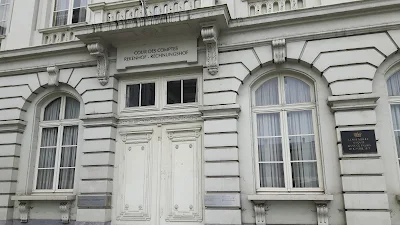Royal Destination Court of Audit in Brussels Belgium
The Cour des Comptes or in Dutch: "Rekenhof" in Brussels, Belgium,
really is an interesting royal and historic destination.
This magnificent building, located in the heart of Brussels, between
the Coudenberg and the Sablon, the Cour des Comptes was a former
residence of the royal family.
Here the Count of Flanders and their family lived. On 8 April 1875,
King Albert I of Belgium was born in this palace.
But there is much more interesting royal history ...
In 1386, the Chambre des Comptes (Court of Audit) was established
by Philip the Bold, Duke of Burgundy.
In 1406, Anthony, Duke of Brabant and second son of Philip the Bold,
set up a Court of Audit in Brabant.
Holy Roman Emperor Charles V ordered that there had to be
Court of Audits in inter alia:
Lille (France), Brussels (Belgium) and The Hague (the Netherlands).
The Court of Audit of Belgium was created on 30 December 1830, just a
few months after the Belgian revolution.
The Court of Audit has to check the use of the public funds :-)
really is an interesting royal and historic destination.
 |
| Court of Audit in Brussels, Belgium |
This magnificent building, located in the heart of Brussels, between
the Coudenberg and the Sablon, the Cour des Comptes was a former
residence of the royal family.
Here the Count of Flanders and their family lived. On 8 April 1875,
King Albert I of Belgium was born in this palace.
 |
| Court of Audit in Brussels, Belgium - Place of Birth of King Albert I |
 |
| King Albert I of Belgium |
But there is much more interesting royal history ...
In 1386, the Chambre des Comptes (Court of Audit) was established
by Philip the Bold, Duke of Burgundy.
In 1406, Anthony, Duke of Brabant and second son of Philip the Bold,
set up a Court of Audit in Brabant.
Holy Roman Emperor Charles V ordered that there had to be
Court of Audits in inter alia:
Lille (France), Brussels (Belgium) and The Hague (the Netherlands).
 |
| Entrance of the Court of Audit in Brussels |
The Court of Audit of Belgium was created on 30 December 1830, just a
few months after the Belgian revolution.
The Court of Audit has to check the use of the public funds :-)



Comments